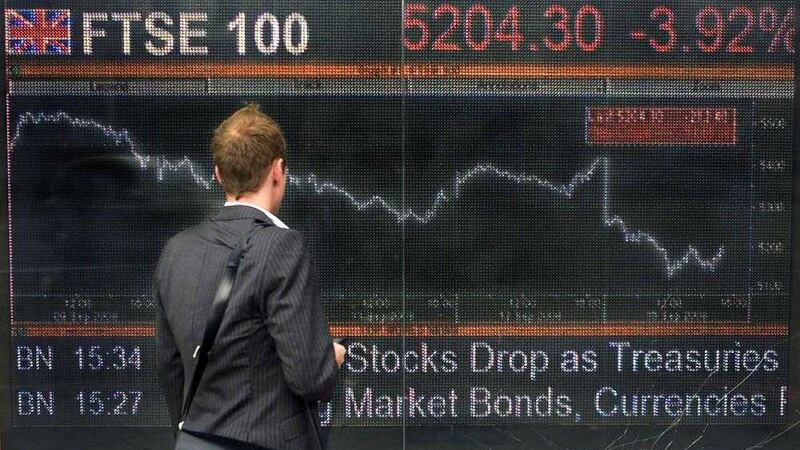WE mentioned in last week’s article that post Brexit a number of property funds had ceased trading or gated as they put it.
Over the last few weeks we have been positive and said “Keep Calm Carry On.” Not a modern consideration by any means this was the poster campaign issued by the British Government in 1939 in preparation for the Second World War.
It was a motivational campaign intended to keep morale up beat with the threat of the Blitz looming over the public.
With the news of a new prime minister for the United Kingdom, struggling sterling, the FTSE is having a resurgence and was at an 11-month high this last week.
The markets and the closure of the aforementioned property funds are all to do with our behavioural psychology. We don’t think about “Keeping Calm and Carrying on”. We all react in similar ways to information and what our peers are doing.
Whilst we like to think as investors we are level headed; unemotional and informed decision-makers we are not. When it comes to the issue of potentially losing money we are five times more likely to let emotion rule our decision making than when we have an opportunity to make money. A loss that is realised is more painful than profit not made.
We are hard wired that way; it is thousands of years of evolutionary design that fear and greed are foremost emotions in our behaviour. The reactions of markets just form a reminder of this. We need to recognise and remind ourselves of when panic is setting in. Cool heads, advised, preferably by an Independent Financial Adviser (IFA) and well-informed decision makers can consider the opportunities that arise.
In every market and investment consideration there will be winners and losers. It has to be so. If someone is panicking and selling, therefore crystallising a loss, the opportunity is that what they are selling is probably cheaper than it has been.
Last week’s closure of property funds is considered as irrational investor decision making.
It is a simple consideration though. Funds close quite simply because they do not have the cash to pay out to investors who want to redeem their investment. You can look at funds sales figures against their redemption (net sales). This tells you about the demand for the funds. If cash is being paid into a fund, then a fund can usually take that payment of cash to satisfy those that want out of their investment and are redeeming.
So, cash into the fund is paid out to those wanting cash. With a property fund you have cash but also a lot of bricks owned, you then have a potential for an illiquid asset class if demand for cash-out increases beyond the cash you are getting in. Once that is an issue you have to sell the property owned by the fund to get cash in so you can pay it out. Not a very quick process especially when you have commercial property worth millions of pounds each.
The next issue an investor and a fund have is the asset is only worth what someone is prepared to pay for it. The valuation of assets is a guestimate. If you have to sell and other funds have to sell there is a little thing called supply and demand. In this case it is probably going to force the price down; and a buyer might want a better deal than that because the buyer knows you have to sell. Simple economics and the opportunity and advantage to get something below a fair value will always be seized upon.
As we have said above, an adviser can be asked about these funds before decisions are made to invest. The writing was on the wall as it was a long time before the UK referendum votes, it was however, the referendum that has pushed these funds over into the current illiquidity they currently have.
Again we reiterate don’t panic and trust in your long-term financial plan. If you are using an Independent Financial Adviser you should have a diversified portfolio, be well informed and have made informed decisions for your future requirements.
We saw this week a gentleman who had complained to the Financial Ombudsman Service that his only pension asset of £48,000 was transferred to a pension and invested in a property investment. It turned out to be a parcel of land next to a golf course. That investment was revalued at £1. He wasn’t diversified, wasn’t advised by a regulated Independent Adviser and lost his entire pension planning money for his future.
Rowan Dartington state in a report we have seen this week that “commercial property is a great diversifier, uncorrelated to equities and fixed interest and is a long-term strategic exposure and not one to be tactically traded. It provides one of the most reliable, non-equity, income streams of all asset classes which grows in real terms over time”.
So, as IFA’s we understand that property and the UK economy will have an uncertain time but we agree with fund experts that this will not mean businesses shutting up shop, vacating premises and stopping trading.
Businesses will remain and some of the costs impacting them may reduce such as rental income; but from an investors point of view this will potentially create opportunities for funds and therefore investors.
:: Darren McKeever (dmckeever@ wwfp.net) is Northern Ireland adviser of Worldwide Financial Planning, which is authorised and regulated by the Financial Services Authority. For a free, no obligation initial chat about your individual finances, call 028 68632692, e-mail info@wwfp.net or click on www. wwfp.net. Follow us on Twitter: @WorldwideFP.








